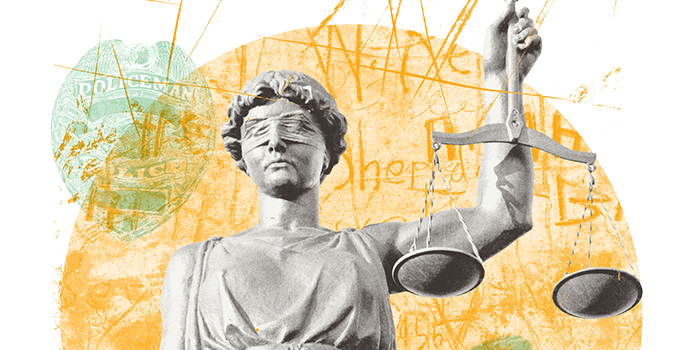Marijuana Law Reform
The ACLU works in courts, legislatures, and communities to defend and preserve the individual rights and liberties that the Constitution and the laws of the United States guarantee everyone in this country.

Stay informed about our latest work in Marijuana Law Reform.
By completing this form, I agree to receive occasional emails per the terms of the ACLU's privacy statement.
The Latest
Explore More
What's at Stake
The enforcement of marijuana laws generates some of the justice system’s starkest racial disparities. “The War on Marijuana in Black and White,” a landmark report from the ACLU, details the staggering racial bias and financial waste of our country’s counterproductive fight against a drug widely considered less harmful than alcohol.
In the United States, between 2001 and 2010, a black person was almost four times more likely to be arrested for marijuana possession than a white person was, despite approximately equal rates of use. In some states and counties, blacks are 8, 10, or even 15 times more likely to be arrested. In addition to its unfairness, the war on marijuana is a colossal waste of resources, with states spending billions of dollars and devoting thousands of hours of police work to it.
Incarceration for simple marijuana possession is common in certain jurisdictions, even though 9 out of 10 adults believe people who possess or use small amounts of marijuana should not face any jail time. Even for individuals who are never incarcerated, collateral consequences that flow from arrests and convictions—such as lost jobs, ineligibility for public housing, suspended driver’s licenses, and restrictions on access to federal student loans—can significantly derail lives. A “criminal history” built on minor marijuana convictions can categorize defendants as “career criminals” for sentencing purposes in subsequent cases, thereby triggering harsh mandatory sentences.
CLRP has fought to implement and protect medical marijuana and decriminalization laws in jurisdictions around the country, helping thousands of people obtain the medicine they need and keeping people who pose no danger to public safety out of the criminal justice system. We also support states’ efforts to tax and regulate marijuana, as in Colorado and Washington. The criminal justice system lags far behind public opinion on marijuana reform, and CLRP is helping it catch up.
The enforcement of marijuana laws generates some of the justice system’s starkest racial disparities. “The War on Marijuana in Black and White,” a landmark report from the ACLU, details the staggering racial bias and financial waste of our country’s counterproductive fight against a drug widely considered less harmful than alcohol.
In the United States, between 2001 and 2010, a black person was almost four times more likely to be arrested for marijuana possession than a white person was, despite approximately equal rates of use. In some states and counties, blacks are 8, 10, or even 15 times more likely to be arrested. In addition to its unfairness, the war on marijuana is a colossal waste of resources, with states spending billions of dollars and devoting thousands of hours of police work to it.
Incarceration for simple marijuana possession is common in certain jurisdictions, even though 9 out of 10 adults believe people who possess or use small amounts of marijuana should not face any jail time. Even for individuals who are never incarcerated, collateral consequences that flow from arrests and convictions—such as lost jobs, ineligibility for public housing, suspended driver’s licenses, and restrictions on access to federal student loans—can significantly derail lives. A “criminal history” built on minor marijuana convictions can categorize defendants as “career criminals” for sentencing purposes in subsequent cases, thereby triggering harsh mandatory sentences.
CLRP has fought to implement and protect medical marijuana and decriminalization laws in jurisdictions around the country, helping thousands of people obtain the medicine they need and keeping people who pose no danger to public safety out of the criminal justice system. We also support states’ efforts to tax and regulate marijuana, as in Colorado and Washington. The criminal justice system lags far behind public opinion on marijuana reform, and CLRP is helping it catch up.




